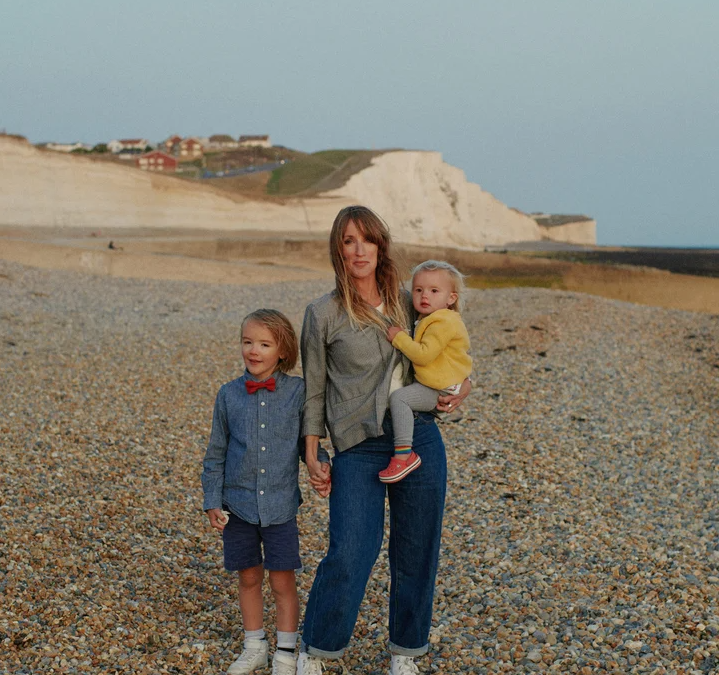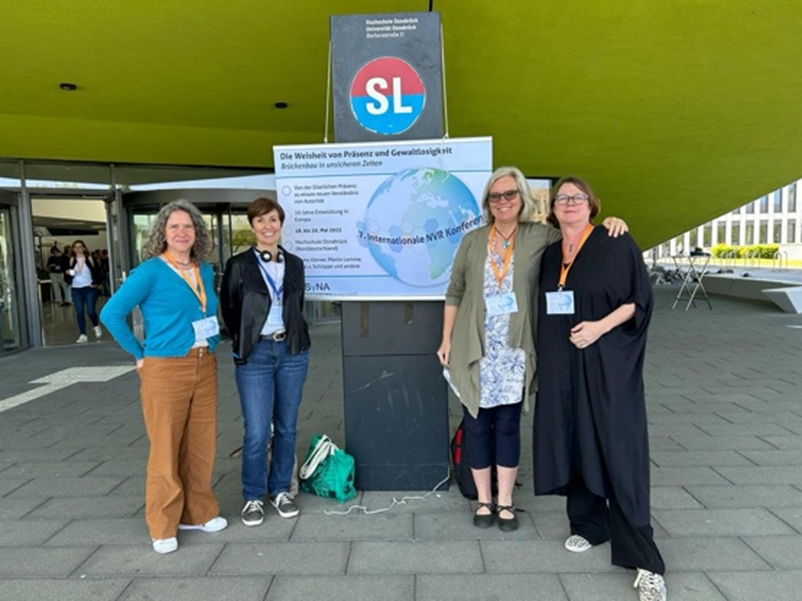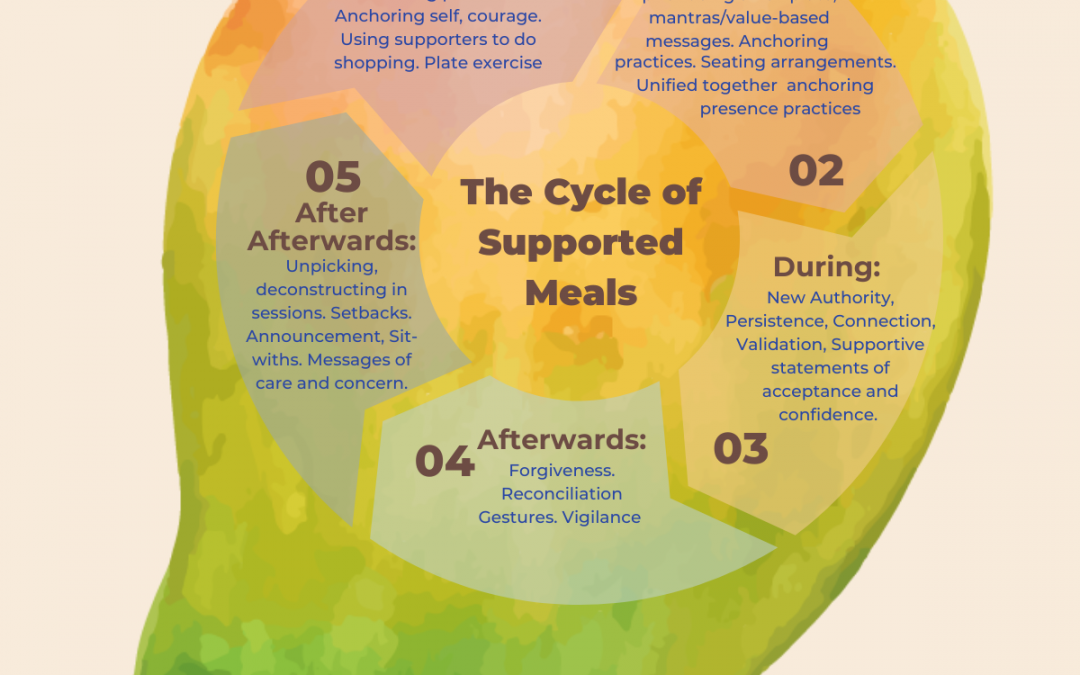
by PartnershipProjects | July 26, 2024
I wanted to reflect on how myself and my colleagues work with parents and carers to support them to move from a place of exhaustion, helplessness, withdrawal, and disconnection (erasure) into a place of presence and connection; both through the understanding and use of NVR principles and skills and the parent’s experience of the therapeutic relationship. The parental experience of ‘mattering’ (Beckers et al 2022) to the therapist enables the parent or carers to ‘power up’: enabling them to engage with ideas of self-care (where we often begin), transparency and resistance.

by PartnershipProjects | June 21, 2024
An NVR approach provides a relational, and systemic approach to illuminating the pathway from dependency to independence for the Adult-Child (A-C) that has Yet to Launch (YTL).
‘Yet to launch’, adult-children that are over the age of 18 years of age, are not in employment not participating meaningfully in education or training and are living in the family home at the parent’s expense. They are dependent on their parents for services, mediation with the outside world, financial support, and accommodation. This phenomenon is a growing challenge for parents worldwide and often

by PartnershipProjects | May 7, 2024
This article originates from real-world insights gained working in a specialist Early Help team in London, dedicated to supporting families and schools in preventing the exclusion of a child. It summarises how innovative Non-Violent Resistance (NVR) approaches, viewed through a trauma-informed lens, can powerfully transform the narrative from exclusion to inclusion for the children and families we work with.

by PartnershipProjects | April 15, 2024
Mum (Nat) is a single parent of 12-year-old Kenzo and 11-year-old Melissa. Nat works full-time managing a bar at an army base, working split shifts.
Kenzo has a diagnosis of ASD + LD, he is physically violent toward mum and sister, he smashes/breaks property and is controlling of the whole family.
Melissa is struggling at home with Kenzo’s behaviours, she feels it is unfair that he behaves the way he does, she feels people make excuses for him and blame his behaviour on his ASD but most of all she feels unhappy and angry at mum and Kenzo.

by PartnershipProjects | February 20, 2024
As an introduction, I just wanted to address the title of this blog. I chose ‘Surviving More than Once’ because I wanted to speak about my experience of Domestic Abuse as a professional and how this helped me to work with NVR clients who are mothers and survivors of domestic abuse. Surviving more than once felt right to me as survivors of domestic abuse often have experienced re-victimisation and victim blaming even after escaping an abusive relationship.

by PartnershipProjects | November 14, 2023
In my presentation, I was hoping to illustrate how we have developed an NVR clinic that sits within the CAPA model, which is the service management system used in our service. I also wanted to be thinking about how brief interventions can still generate relational change, and what might contribute to this.

by PartnershipProjects | September 30, 2023
Lisa is a single mum to Kasha, aged 15 and to 5-year-old Hari. Lisa and her partner, Jane, separated 10 months ago and Kasha lives in a flat with Jane, 2 miles from Lisa and Hari, visiting regularly. Lisa came for therapy concerned about Kasha’s volatile and unpredictable behaviour and the effect of this on both her and on Hari. Lisa and Kasha had been working at improving their relationship but Lisa came to her therapy session this week with a story to tell about events at home and her responses to them, which she agreed could be shared as a way of potentially helping others in a similar position.

by PartnershipProjects | September 14, 2023
There has been an increase in childhood anxieties and the paralysing effects it has had on our children and young people’s transition towards independence as well as the experiences of loss and being trapped by siblings and parents. Outside witnesses such as school, neighbours, family, and friends watch on not being able to know how to help. It is because of this increasing phenomenon that the SPACE training was organised and hosted by PartnershipProjects and indeed the sellout of all places on the training was indicative of the need and demand for practitioners and parents alike.

by PartnershipProjects | June 26, 2023
‘The wisdom of presence and NVR – building bridges in uncertain times’
With contributions from Jill Lubienski, Julie Oates, Jackie Lindeck and Rosalind McCormick
The 7th International NVR Conference was the first opportunity since 2018 for the worldwide NVR community to congregate in person and, over 3 days, to share the personal connection, the vibrancy of our ideas and also our worries for the very difficult problems facing us in a world where conflict, war and division are so prevalent. Around 300 delegates and speakers arrived in Osnabruck from the UK, Netherlands, Germany, Belgium, Austria, Ukraine, Russia, New Zealand, Australia and Canada. We also benefited from the technology available to Osnabruck University of Applied Sciences to offer the conference in a ‘hybrid’ form, and so were joined for keynote presentations and some workshops, by colleagues online from all over the world. A truly international gathering of people concerned to think about peaceful, caring, connecting dialogue and practices, even when alliance building may seem like an insurmountable task.

by PartnershipProjects | June 5, 2023
Every year without fail my uncle sends packages of mangoes from our farm in a rural village in India and with anticipation, we look forward to enjoying their juicy delights as part of a family ritual. There is a tradition to how they are eaten and passed down through the generations. The maternal head of the household- usually the mother slices them all, arranged on a plate, and is the one that eats the middle pulp section- is often seen as the least favourable but is often secretly the most delicious and messy !! My daughter recently said to me as she was waiting for her slices, “ Mum why do you always have the middle bit”- to which I exclaimed “It remains one of the few places where I have some authority” and we laughed.










